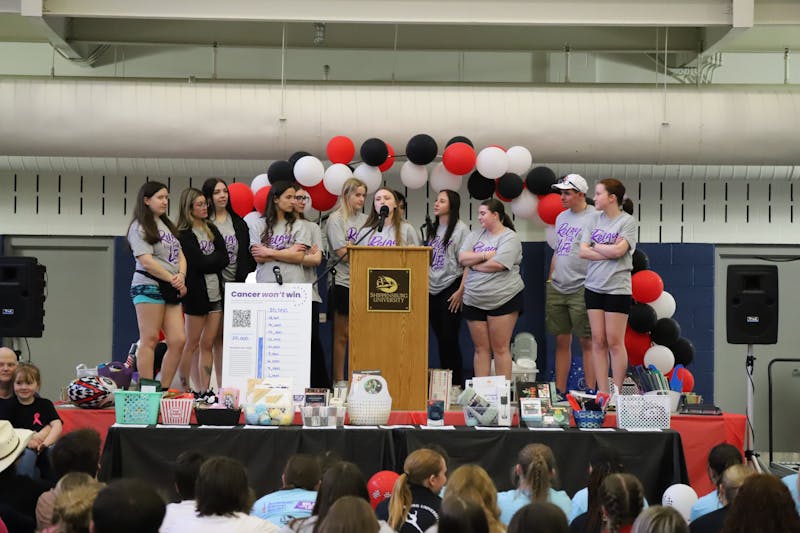If it was not for the “DoNut Alley” sign at the end of a narrow, dimly-lit street in Hagerstown, it could be easy to drive by Krumpe’s Do-nuts and have no idea that it is there.
But for many faithful locals, this has never been a problem.
From the late evening to early hours of the morning, customers ranging from young families to fraternity brothers have frequented the standing-room-only shop, which has been open and passed down through the Krumpe family since the early 1930s.
The building has an aged feel, with classic-colored paint and a walk-up counter. Rows and rows of freshly-made doughnuts of more than 30 flavors are lined up on cooling trays in the back— their smells wafting over the counter and into the cold night air.
The doughnuts are made at night so that they are as fresh as possible when Krumpe’s delivery drivers drop them off at local businesses the next morning.
Owner Max Krumpe has carried on many of the traditions started by his great-grandfather, Rudolf, a German immigrant. Krumpe’s makes all of its dough and icing from scratch, using special flour and spices to give the doughnuts a signature taste.
Max continues to make doughnuts with the recipe created by his great-grandparents, on an approximately decades-old machine that was used by his great-grandfather. Max’s father, Fred — who used to run the business — regularly helps him make the doughnuts.
The shop’s rich history is evident all around the car garage-sized shop — in fact, that is exactly what the building used to be.
Max’s grandparents opened Krumpe’s at its current location after buying the house that the garage belonged to and converting it into a bakery.
“I wanted to keep history going. I wanted to be a part of it,” Max said.
What helps Krumpe’s stand out, he says, is the social media and marketing efforts that he brought with him when taking over the business.
Krumpe’s interactions with the community may also help draw customers to the shop. These include sponsoring a Wounded Warrior run and a “Doughnut Drop” on New Year’s Eve.
Max’s main hope for the future is that other family members will want to carry on the business’s legacy.
“Hopefully it’ll still be here in 50 years and someone will take it over,” he said. “Or maybe we’ll still be working here, who knows?”




The Slate welcomes thoughtful discussion on all of our stories, but please keep comments civil and on-topic. Read our full guidelines here.